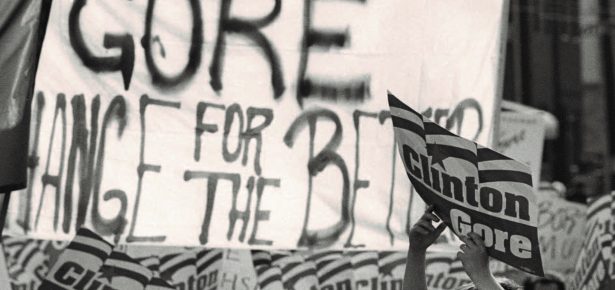
Though best known for its unusual, first-person-plural narrator (a group of office-workers speaking as “we”), Joshua Ferris’s Then We Came to the End (2007) also includes a single third-person chapter, which focuses on the workers’ otherwise “unapproachable” boss, Lynn Mason. Later we learn this interlude is part of a novel-within-the novel written by another character, though – importantly – not the “small, angry book about work” we’d seen him writing earlier in the text. As the character, Hank Neary, explains, “In the first book I tried to write… the book I put down, I based a character on Lynn, and I made that character into a tyrant. I did it on principle, because anyone who was a boss in that book had to be a tyrant. Anyone who believed in the merits of capitalism, and soul-destroying corporations, and work work work — all that — naturally that person wasn’t deserving any sympathy.”
In the book he actually writes, Hank rejects the “principle” that his relationship with Lynn is mediated by ideology (disagreements about the “merits of capitalism”) and by the class structure of capitalism itself, the structure in which Lynn is a “boss” and therefore fundamentally at odds with him, a worker. Instead, he writes a book tailor-made to create, not dispel, “sympathy” for the boss, as it shows her struggling with the same kinds of emotional and existential crises as her workers. Thus, though the shift in narration underscores Lynn’s distance from her employees, the content of the chapter links her, symbolically, with the workplace “we,” which Ferris describes elsewhere as a “community” and “a collection of messy human beings.”
In Liberalism and American Literature in the Clinton Era, I explore why writers like Ferris (and his fictional avatar, Hank Neary) are so intent on re-imagining a world of classes as a world of communities, along with other non-antagonistic social forms. I read this and other works as part of a broader effort to reinvent American liberalism in the 1990s and early 2000s, an effort that emerges in response to the so-called “Reagan Revolution” in US politics and culture. Even as this new liberalism resists the anti-social qualities of free-market politics, it still tends to embrace the personalizing logic of this politics, according to which social problems like poverty are understood in terms of individual “opportunities” stifled by the “era of big government,” or failures of “personal responsibility” on the part of welfare recipients, or a lack of “community” spirit on the part of the poor, the middle-class, and the wealthy (to cite some of Bill Clinton’s favorite tropes).
In Ferris’s novel, the effort to create this sense of community is complicated by the same reflexive twist I’ve just described. Indeed, the book reproduces the conflict between impersonal structures and affective relationships on the level of form as well as plot, as the reader must reject the ironic message of metafiction – that everything, including sympathy, is a construct – in order to connect with Lynn, with Hank, and ultimately with Ferris himself, who seems to speak directly to the reader in the novel’s final lines. In this way, Then We Came to the End also stages the end of postmodern narrative, a common gesture in the literary culture of this period, as postmodernism (with its own ambivalent relationship to class politics) was thought by many writers to be complicit with the fragmentation of American life, the process David Foster Wallace describes in his influential 1993 essay, “E. Unibus Pluram.”
The Clinton era is, in this sense, an important turning point not just in the history of American politics, but in the history of the American novel. It’s also crucial context for understanding our still-more-recent history, in which, as I note in the book, resistance to this kind of art and politics has moved closer to the mainstream. If this novel, published in 2007, suggests it is naïve for an author to be “angry” about “capitalism,” many more recent works – written after events like the 2008 global financial crisis – insist it is naïve not to be.
Latest Comments
Have your say!